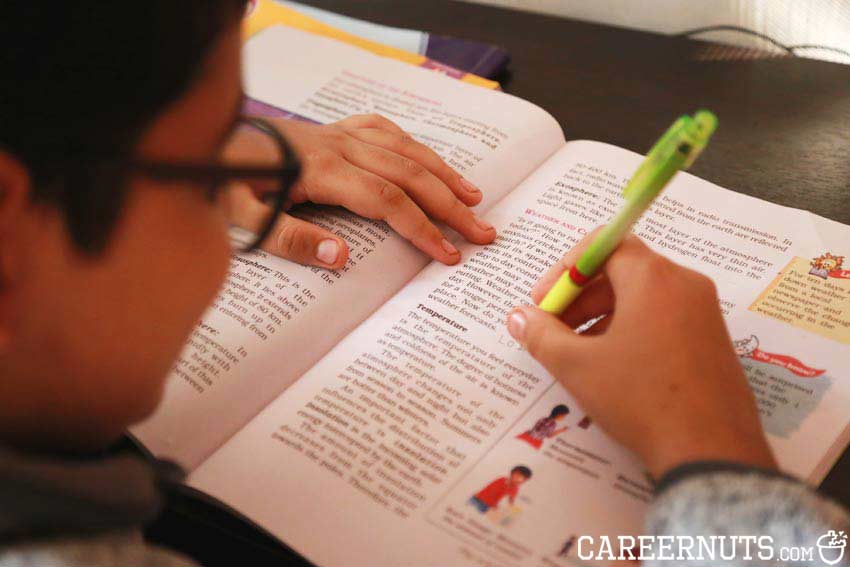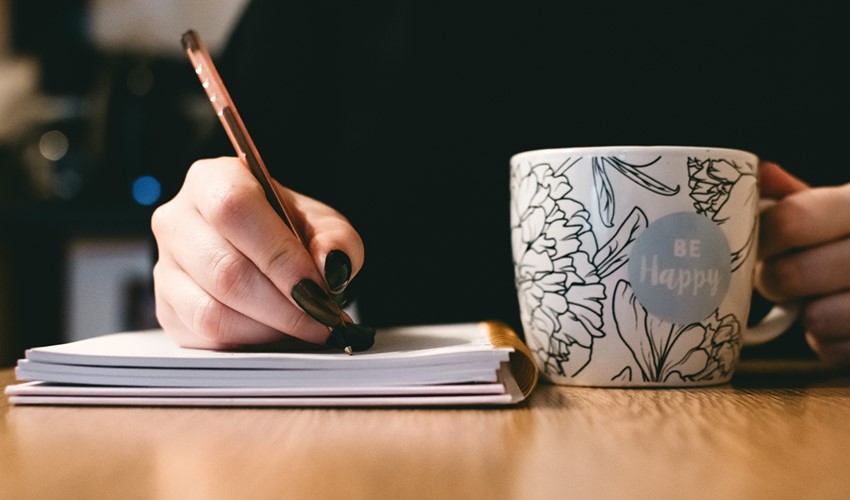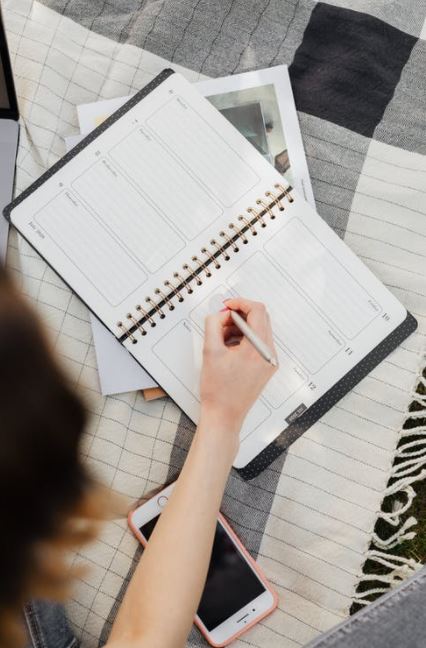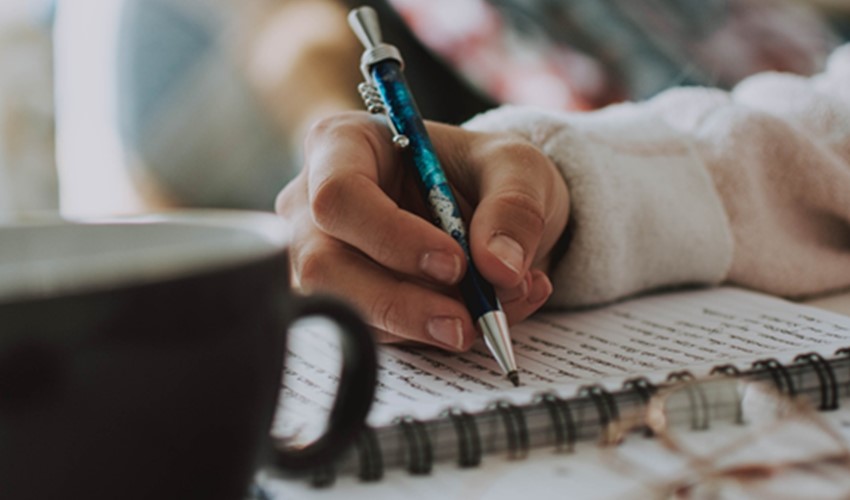Tried & tested over decades of studying and improving, Harvard alumna Shilpa Ahuja shares some excellent study tips that actually work.
As a middle and high-schooler, I was a just-above-average student. My mom strictly believed my brother and I should study ourselves and manage our own study schedules. (We’ve been self-study kids since Grade 3).
However, things changed when I went to college. With full books to study for exams that counted for very less part of the overall grade, I needed to find ways to study smarter, not harder. As those secret methods started working for me, I found myself spending way lesser time studying than my classmates yet getting better grades than most. I became among the top 3 students in my class. I was ecstatic!
While preparing for my GRE, then during my masters degree at Harvard, I had to think up even smarter ways to study as the workload (and complexity) increased manifold. This time however, I was armed with my project management work experience, and applied some of those concepts to my studies as well!
And finally, the most challenging time of my study is now, after all my official education is complete. Studying French is a hobby now, which between entrepreneurship and home management, I barely get time for or can justify. Self-studying a foreign language is extremely demanding, as it needs full concentration and lots of memorization ( I still managed to score 98% in my French A1 exam).
Study Tips on How to Study Smart
So as I hope I have proven by now, my experience with studying has been vast and varied. Over the decades, I have only improved as a student, and I hope my life-long learning continues. So here I’d like to share the study tips that have helped me over these years, and which can surely help you improve both your grades and study experience.
1. Read out loud to memorize
This is a tip you’ll often hear from teachers and parents, and I actually learned this from my class topper in middle school! And it actually works. Reading alone can’t help you memorize. But if you read out loud and repeatedly, you can actually memorize things. Talk to yourself out loud, pretend to explain it to yourself and ask yourself questions too. All these activities help our brain retain the information.
2. Pay attention in class
It may sound like silly advice, but it’s one of the most important study tips I learned in college. While most students considered lecture classes boring and pointless, I actually realized that paying attention helps you become familiar with the concepts. This will ease up the study schedule when studying for exams. Plus it’ll also help you retain a lot of information through association method (“I was sitting in that classroom on that bench when this was taught”).
3. Mark important questions in class
Another plus point about paying attention in class is that you can mark important questions. Teachers usually tell what’s important, or what frequently comes in exams, so pay attention.
4. Make class notes in good handwriting
Making notes in the classroom is one of the top study tips that can help you score well in exams. It’ll help you remember the lecture, and writing in good handwriting will help you enjoy re-reading them during exam time. (Plus, you’ll be able to admire your handiwork).
Also read: How to Improve Your Writing Skills: Quick Tips by Experienced Writers
5. Revise, revise
Memorization is all about repetition. That’s how toddlers learn new words and phrases. So spend as much time revising the syllabus as you spend studying it, even if that means you have to hurry up the study process. Start by revising the important topics, or those you have trouble remembering. Mark topics or questions that you have trouble memorizing so you can revise it twice or thrice or as many times as you need.
6. Practice by writing
There are certain things that you just can’t memorize or concepts you can’t grasp unless you write and practice. Maths, physics problems and in high school, chemistry requires lots of writing practice. Also, in languages, the best way to learn spellings is by practising writing.
7. Keep your homework complete
This is one of the most practical study tips. Doing your homework regularly and going over the topics taught in class will help you get an idea of what you don’t understand, so you can work on that. Plus, it’ll also help you be up-to-date with your favourite topics, which make studying fun for you.
8. Mark doubts to ask your teacher
The best students are often those who know what they don’t understand and try to solve this by posing the right questions. Never hesitate to ask the teacher, and even ask again, if needed.
9. Make mnemonics or songs
Many students easily understand concepts but have trouble memorizing facts, figures, formulae or new terms. This is where mnemonics and songs come in. Try to find logic behind what you’re memorizing. If there doesn’t seem to be any, make up something funny that’ll help you associate new things with other familiar things!
10. Make your own flash cards or charts; Avoid readymade ones
This is something that’s helped me immensely when studying languages. Often, I find that readymade study tools don’t work for me. So I make my own charts (with little drawings) or flash cards that help me memorize more effectively. This happens because your memorization process starts as soon as you work on making the tool itself. So I advise everyone to avoid apps, flash cards or other readymade material, as they’re mostly a waste of time and money.
11. Use the study method that works for you
Everyone is different. While you may find hundreds of study tips and tools everywhere, it’s important to understand that not everything will be as effective for you as it is for others. So just stick to whatever works best for you. And exams are not the time to try new things, so try those at least a few weeks before your exams.
12. Study groups only work for some
Studying in groups has its own pros and cons. I know lots of my classmates liked study groups, but personally, they never worked for me. So if they don’t work for you either, don’t feel peer pressure and stick to studying by yourself.
13. Set targets to complete your syllabus
Creating a schedule is really important when preparing for exams. Simply decide how many days you need for each subject, etc. and try your best to stick to the daily targets. This will help you avoid unnecessary pressure on the day before the exam.
Creating a time-plan will also help you become better at time management, which will help you throughout your life.
14. Avoid comparing your study schedule or difficult topics with others
Comparing yourself with other students can help you be competitive, but can also put undue strain on you. Everyone has a different study schedule, so comparing yourself can make you nervous. Don’t feel bad if others seem to have completed their syllabus/ revision sooner (or they may be lying and telling you they haven’t even started yet). In fact, avoid these conversations altogether.
Also check out: Why Topper Students Fair Average in Real Life
15. Understand what you can, memorize what you can’t
Here’s one of the study tips my dad taught me when I was stuck with my social studies exam prep (I hated Civics as I couldn’t understand it much). Yes, you want to try to understand all the concepts. But when you can’t, just memorize it and call it a day.
16. Make your quick revision notes for the night & morning before exam
Write down all the important formulae & any notes that you tend to forget on a paper. This is your ready-reckoner, like a cheat sheet, but not for cheating! It’ll help you go back and revise stuff the night and morning before exam.
17. Create a proper study space
Being in a comfortable posture helps us study for longer. So make sure you have a desk and an ergonomic chair that’s right for your height.
18. Choose a quiet place to study
Where you study has a great impact on how well you score in exams. So make sure you have a proper, quiet study space with less distractions. Clear your desk and clean your room before you start, so that you can become efficient.
19. Avoid studying on an empty stomach
Food is one of our prime human needs. So being hungry will keep you distracted. So try to eat a wholesome meal before you start studying. It’ll help you study for long hours and concentrate better. But don’t overeat as that can make you sleepy. Avoid carb-heavy foods like rice or junk food.
20. Learn to take regular study breaks
Study breaks help us improve concentration and retention. They also help us reduce stress. You can spend 15 minutes twice or thrice a day for breaks even when studying for exams. Try to take a walk or spend time with nature, perhaps in your garden, park or balcony near the plants or in the sun. Listen to the birds to relax or meditate.
21. Change your place of study to clear your mind
It’s important to start a new topic fresh. So when you’re done studying a set of topics or chapters, move to a new place to study the next set.
Also read: How to Find Motivation: 7 Tips Every Student Should Know
22. Start studying in the morning
Everyone has their own favorite time to study. But mornings are when our minds are the most fresh and empty of external thoughts, which helps us retain what we study. So start in the morning when you’re tension-free and energetic.
23. Start studying your least favorite topics first
There’s no rule that Chapter 1 has to be the first one for revision during exam prep time. Start with the worst chapters first, especially when you have more time on your hands. This way, you’ll feel like you’ve studied a lot even if the quantity of syllabus covered is lesser. It will help you feel unburdened when the time left is less and you can enjoy by focusing on your best topics!
24. Take as many practice tests as you can
Practice tests and mock tests become really crucial when preparing for 10th boards or competitive exams like GRE, CAT, NEET, etc. Try finishing your basic syllabus as soon as you can, and spend at least a few months just writing practice tests. Even if you do badly on them, keep writing more. Find ways to improve by marking questions you got wrong, and finding topics you’re good or fast at. Practice tests can actually make a lot of difference in your overall rank/score.
25. Listen to music to relax & memorize difficult topics
Our mind associates memories with our senses, like smelling a certain perfume or listening to a certain song can help us recall a certain memory. So if you’re studying something difficult, or are feeling stressed, listen to a new song. Then listen to the same song every time you study that topic.
So I hope you found my study tips helpful. I know that some of these will sound like advice you’ve already heard from others, but I hope my reasoning for these will help you understand why they’re really useful. Sometimes the most practical advice is the most efficient, and these tips helped me go from an average student to a top one.
All said and done, it’s all about hard work and practice. Good students study and they don’t give up. So keep going until you succeed!
All the best!
Read next:
Success Tips for School Students | Your Guide to Accomplishing Life Goals

Shilpa Ahuja is the editor of Career Nuts. She has a Masters in Design Studies (MDesS) degree from Harvard University Graduate School of Design, class of 2011.
Shilpa is an entrepreneur and founder of Shilpa Ahuja Digital Media, an online publishing company that includes HowtoGetinto-Harvard.com, a Harvard admissions guide, ShilpaAhuja.com, one of India’s most-read digital fashion magazine, OpiniOwn.com, a social publication and Decorisk.com, a digital interior décor magazine. She is also the creator of Audrey O., a comic series that represents the lifestyle of millennial women.
She also has a bachelor’s degree in architecture from Chandigarh College of Architecture (B.Arch), class of 2007. She has worked in interior project management for The Park hotels and in graphic design and education technologies for Harvard Law School.
Originally from Chandigarh, Shilpa enjoys art, creative writing, fashion and travel. Her art has been exhibited at Harvard Graduate School of Design and the Aroma Hotel, Chandigarh. Her work has been published in University of Fashion blog, Jet Airways magazine, Chandigarh Times and Indian Design & Interiors magazine. She is also the author of the book “Designing a Chinese Cultural Center in India”.














very informative and useful information thanks for sharing.